
Life sciences writer Susan Milius has been writing about botany, zoology and ecology for Science News since the last millennium. She worked at diverse publications before breaking into science writing and editing. After stints on the staffs of The Scientist, Science, International Wildlife and United Press International, she joined Science News. Three of Susan's articles have been selected to appear in editions of The Best American Science Writing.

Trustworthy journalism comes at a price.
Scientists and journalists share a core belief in questioning, observing and verifying to reach the truth. Science News reports on crucial research and discovery across science disciplines. We need your financial support to make it happen – every contribution makes a difference.
All Stories by Susan Milius
-
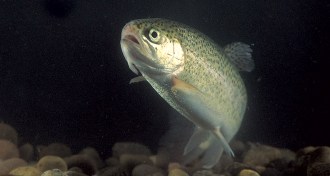 Animals
AnimalsFrustrated fish get feisty
Smaller rainbow trout become more aggressive towards bigger fish when they don’t their usual treats.
-
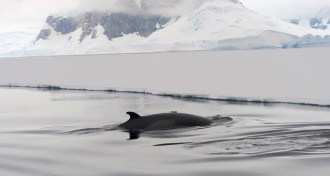 Animals
AnimalsSubmariners’ ‘bio-duck’ is probably a whale
First acoustic tags on Antarctic minke whales suggest the marine mammals are the long-sought source of the mysterious bio-duck sound.
-
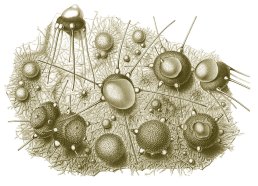 Life
LifeThe name of the fungus
A rebellion has broken out against the traditional way of naming species in the peculiar, shape-shifting world of fungi.
-
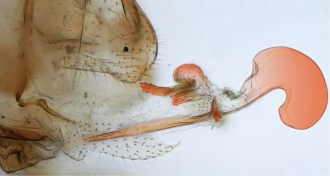 Animals
AnimalsMost extreme female penis is found on cave lice
Female penis, male vagina have been discovered in tiny Brazilian insects.
-
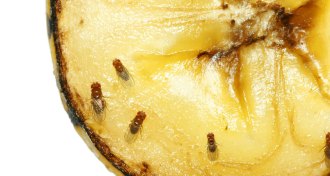 Animals
AnimalsScent of a fruit fly larva comes from its gut microbes
Microbes in the guts of fly larvae produce smells that attract fruit flies.
-
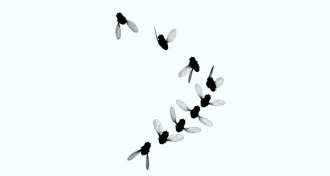 Life
LifeIn a crisis, fruit flies do stunt turns
An elaborate monitoring system reveals that fruit flies can execute sophisticated flying maneuvers in the face of danger.
-
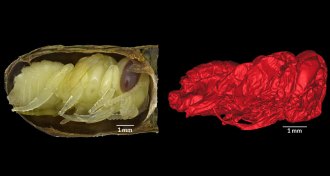 Paleontology
PaleontologyLa Brea Tar Pits yield exquisite Ice Age bees
Ancient bee pupae snug in leafy nest give clues to Pleistocene climate.
-
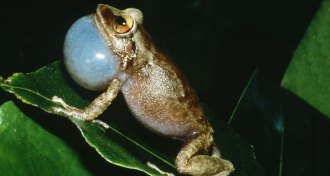 Animals
AnimalsCoquí frogs got smaller, squeakier as climate warmed
As temperatures climbed in Puerto Rico, the calls of male coquí frogs became higher pitched.
-
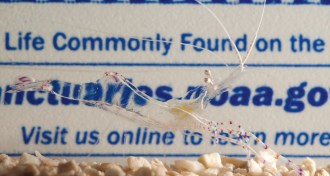 Animals
AnimalsSee-through shrimp flex invisible muscle
Much of the body of a Pederson’s transparent shrimp looks like watery nothing, but it’s a superhero sort of nothing.
-
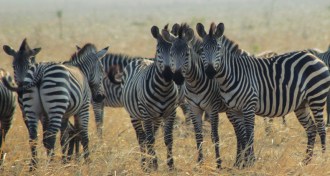 Animals
AnimalsZebra stripes may be mainly defense against flies
The function of zebra stripes may not be for camouflage or cooling, a new analysis finds.
-
 Life
LifeWhen hummingbirds fly unfriendly skies
Hummingbirds hover easily in turbulent air as long as the disturbances aren’t too wide.
-
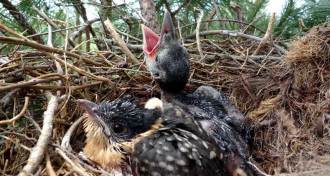 Animals
AnimalsA parasitic cuckoo can be a good thing
Great spotted cuckoo chicks show that brood parasites may benefit their hosts.